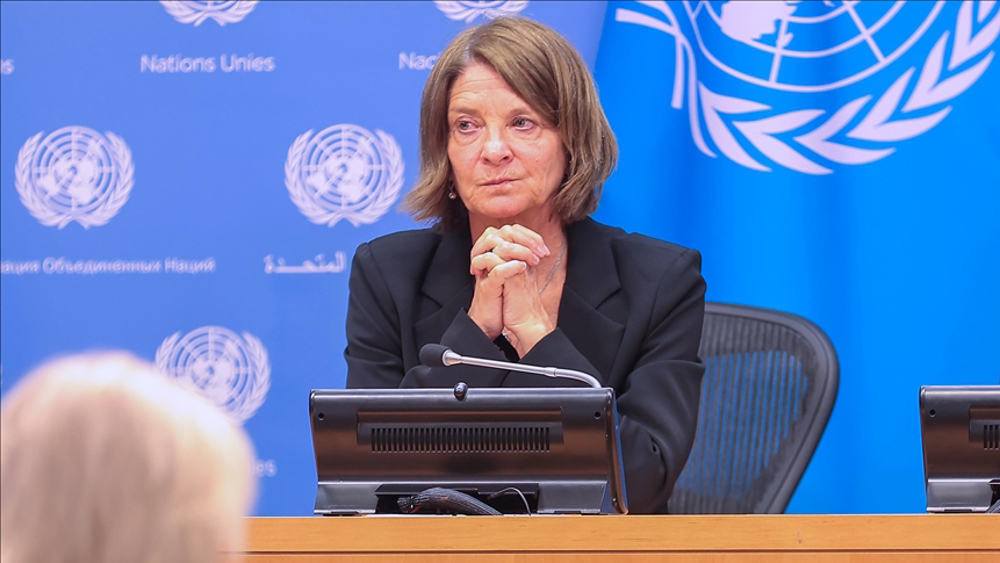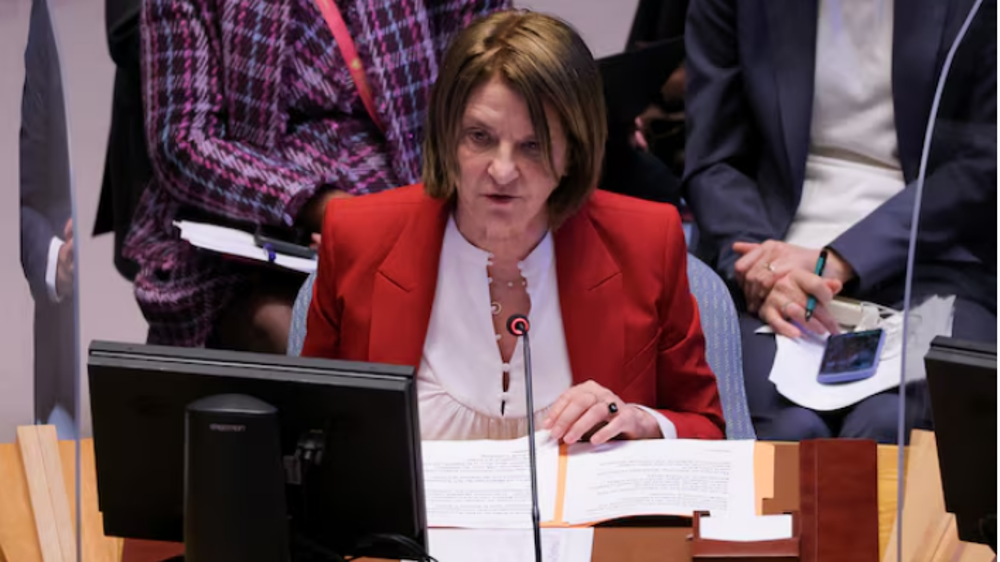EU-Turkey deal trampling rights of refugees: Amnesty
Amnesty International says thousands of refugees and asylum seekers being held arbitrarily in “appalling” conditions on the Greek islands of Lesvos and Chios have inadequate access to legal aid or information about their fate under the EU-Turkey refugee deal.
“On the edge of Europe, refugees are trapped with no light at the end of the tunnel. A setup that is so flawed, rushed and ill-prepared is ripe for mistakes, trampling the rights and well-being of some of the most vulnerable people,” said Amnesty's Deputy Director for Europe Gauri van Gulik.
“People detained on Lesbos and Chios have virtually no access to legal aid, limited access to services and support, and hardly any information about their current status or possible fate. The fear and desperation are palpable,” she added.
The senior Amnesty official also said that "Europe is turning what should be a path to protection into a nightmare of barbed wire, insecurity and crippling anxiety over the prospect of being sent back to Turkey."
“Serious and immediate steps must be taken to address the glaring gaps we’ve documented in Lesvos (Lesbos) and Chios. They show that in addition to Turkey not being safe for refugees at the moment, there are also serious flaws on the Greek side of the EU-Turkey deal. Until both are fully resolved, no further returns should take place,” she pointed out.

The UN says some people in the first batch of refugees returned from Greece to Turkey as part of an agreement between Ankara and the EU may have been dispatched mistakenly.
Vincent Cochetel, the director of the UN refugee agency's Europe bureau, said on Tuesday that 13 Afghans and a number of Congolese nationals, who were returned Monday, had not had any chances to claim asylum.
Under a deal signed between EU and Turkey last month, Ankara will be obliged to take back all illegal refugees deported from Greece while the EU will accept thousands of Syrian asylum seekers directly from Turkey.
Although Turkish Prime Minister Ahmet Davutoglu said the agreement was meant for “humanitarian” purposes, Ankara inked the deal in return for financial rewards. According to Davutoglu, the €3 billion that the EU has pledged to Ankara will be spent on Syrian refugees in Turkey in the coming weeks and another €3 billion will also be given to it until the end of 2018 to help improve the conditions of the asylum seekers of the war-torn country.
As part of the deal, EU leaders also promised to open fresh negotiations on Turkey’s accession process to the European Union, and to reward Turkish citizens with visa free access to the Schengen zone.

The United Nations human rights chief has voiced concern about the deal, saying it could lead to the “collective expulsions” of people fleeing war in violation of international law.
Europe is facing an unprecedented influx of refugees, who are fleeing conflict-ridden zones in Africa and the Middle East, particularly Syria.
Many blame major European powers for the unprecedented exodus, saying their policies have led to a surge in terrorism and war in those regions, forcing more people to flee their homes.
Iran’s shortest rail route between China and Europe
'Shameful': Hamas decries Western systemic campaign against UN expert Albanese
Ethics in suspension: Epsteinization of power in today’s post-shame politics
Trump knows he cannot use military force to press Iran into accepting Israeli demands: Mearsheimer
Iran president vows to fast-track corridor projects to ensure regional security
VIDEO | Press TV's news headlines
Exposed: Leaked docs show monarchists rallying Iranian diaspora to back attack on Iran
Iran main obstacle to realization of ‘Greater Israel’ scheme: Hezbollah















 This makes it easy to access the Press TV website
This makes it easy to access the Press TV website